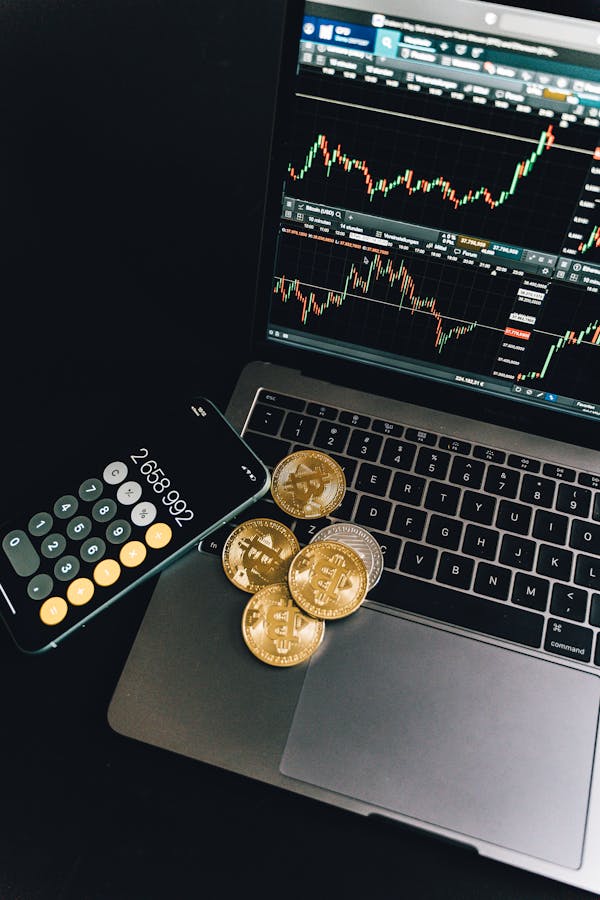A Beginner’s Guide to Trading on Cryptocurrency Exchanges
Cryptocurrency exchanges act as marketplaces for buying and selling cryptocurrencies. They typically require users to register on the platform and deposit funds into an account (or wallet) denominated in either fiat currencies or cryptocurrencies like Bitcoin.
Once an order is matched, the exchange completes the transaction and settles fees (maker fees and taker fees) in real-time. These fees can be substantial. Discover more with Cryptsy.
Liquidity
Liquidity in cryptocurrency refers to the ease with which digital assets can be purchased or sold on an exchange. Higher liquidity means more buyers and sellers in the market, which can help stabilize prices and ensure that traders have a good experience. In addition, if a cryptocurrency is widely accepted by businesses and individuals, its liquidity will increase as more people buy it for use.
Liquidity is essential for the success of a crypto exchange. It is defined by the number of cryptocurrencies available to trade, the trading volume, and the availability of market makers. Liquidity can be affected by several factors, including regulatory uncertainty and market conditions.
In order to access liquidity in a cryptocurrency exchange, users must register an account on the platform. They typically provide personal information and undergo KYC procedures to comply with regulations. They can then deposit funds in their accounts and purchase cryptocurrencies with it. These deposits are usually denominated in cryptocurrencies, but some exchanges accept fiat currencies as well.
Fees
Crypto exchanges generally charge a combination of trading fees and deposit or withdrawal transaction fees. They also offer a variety of payment methods for purchasing cryptocurrencies, including credit cards, ACH transfers and e-wallets. You should pay close attention to these fees, as high fees can eat into your investment returns.

You can minimize these charges by using limit orders and buying crypto coins with existing assets, instead of fiat currencies or credit cards. Additionally, you can take advantage of maker and taker fee discounts by depositing a large amount of money to your account.
You should also look for an exchange that offers a good customer support department. This is especially important if you are new to crypto trading and need help understanding fees or how to trade. Moreover, you should check whether the exchange is registered with the US Financial Crimes Enforcement Network. This will ensure that your funds are safe from hackers. Also, make sure the exchange uses strong encryption to protect user data.
Security
Cryptocurrency exchanges are susceptible to hacker penetrations and other security breaches, which can result in the loss of user funds. These attacks can have serious implications, including a loss of confidence in the industry. Fortunately, there are a number of measures that can be taken to protect your cryptocurrency assets and investment.
One of the most important steps is to keep your wallet software and other security tools up-to-date. This ensures that you have the latest security patches and fixes, which can help reduce vulnerability to malware. Additionally, it is recommended that you use a cold storage method, which involves storing your assets offline and disconnected from the internet.
Another important step is to do proper research on the exchange and its founders. Look for a website that has a solid customer support system and is easy to navigate. Also, check whether the exchange discloses its cryptocurrency reserves. If not, this could be a red flag.
Trading options
A cryptocurrency trading platform or app allows you to buy and sell cryptocurrencies. It also provides liquidity and facilitates price discovery. In addition, many exchanges have advanced features like margin trading and staking/lending. Moreover, some have customer support and educational resources to help new traders.
The best crypto trading platforms offer a wide range of supported assets and reliable security features. They also offer convenient deposit and withdrawal options, such as wire transfers and credit/debit cards. Many also offer wallet security features, such as address whitelisting, to reduce the risk of hacks.
Choosing a cryptocurrency exchange depends on your trading needs and preferences. If you are looking for a regulated, centralized exchange with a large number of pairs and low fees, consider Gemini, the reputable cryptocurrency brokerage and custodian founded by the Winklevoss twins. The exchange offers a wide variety of both BTC and ETH trading pairs and supports most major cryptocurrencies. In addition, it offers options on both Bitcoin and Ethereum futures contracts.
